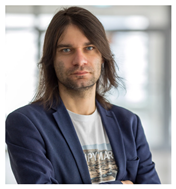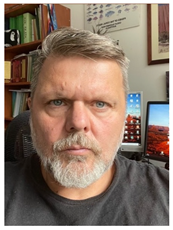Limnology is the study of inland water ecosystems, which are major contributors to biospheric diversity, structure, and function, even though they represent a small fraction of surface waters. They also serve a pivotal function for the human population by providing water for drinking and irrigation purposes, recycling nutrients, and by means of trade and transport and opportunities for recreation. In other words, they provide goods and services while playing a fundamental role in support for the environment, society, and the economy [1]. It is beyond any doubt that tackling climate change and adapting to it require the preservation of inland waters [2]. Limnology offers an interdisciplinary repertoire of tools to understand these ecosystems’ physical, chemical, and biological features, track the trends, and develop effective protection and restoration methods [1]. All of these must be communicated swiftly and in an accessible manner if humans wish science to serve its purposes [3].
Limnological Review [4] (ISSN 2300-7575) was founded as the platform to promote limnology, exchange field-based and experimental experience, as well as theoretical background essential in understanding the complexity of processes influencing the functioning of inland water ecosystems and their protection. The journal was founded by Nicolaus Copernicus University in Toruń in 2001 and then by the newly created Polish Limnological Society and published continuously through different publishing platforms. However, it became increasingly challenging for our Society to run the journal in recent years, particularly with negligible external support from science funding institutions. It also coincided with the passing of our dear friend, the long-term Editor-in-Chief of Limnological Review, Prof. Dr. Dariusz Borowiak, who was devoted to limnology. Fortunately, MDPI came forward, understood the mission of our journal, and offered to publish the journal. As the Polish Limnological Society, we are grateful for this help and glad that the history and aims of the Limnological Review will be continued in an open access fashion, making the science communicated through the journal accessible to everyone.
As an Editor-in-Chief (Piotr Rzymski), President of the Polish Limnological Society (Piotr Klimaszyk), and founder of the Limnological Society (Włodzimierz Marszelewski), we cordially invite you to contribute to Limnological Review.
The journal welcomes original research and review papers focusing on inland, both natural and manmade, water ecosystems. The journal’s goal is to keep records of state-of-the-art studies of aquatic ecosystems and promote limnology. The scope of this covers all aspects of freshwater environment studies, from lakes and rivers to wetlands, and from physical and chemical to biological limnology. It encompasses field-based, experimental, as well as theoretical research, with a particular emphasis on hydrology, paleolimnology, aquatic biology, ecohydrology, hydrochemistry, aquatic toxicology, sedimentology, environmental engineering, physical geography, and geoinformatics.
Conflicts of Interest
The authors declare no conflict of interest.
References
- Wetzel, R.G. Limnology, 3rd ed.; Academic Press: Cambridge, MA, USA, 2001; ISBN 9780080574394. [Google Scholar]
- Bonar, S.A.; Avery, J.; Camacho, A.; Douglas, M.E.; Gillanders, B.M.; Grottoli, A.G.; Murphy, B.R.; Ramirez, A.; Rzymski, P. More than 100 Aquatic-Science Societies Sound Climate Alarm. Nature 2021, 589, 352. [Google Scholar] [CrossRef] [PubMed]
- Campbell, E.; Uppalapati, S.S.; Kotcher, J.; Maibach, E. Communication Research to Improve Engagement with Climate Change and Human Health: A Review. Front. Public Health 2022, 10, 1086858. [Google Scholar] [CrossRef] [PubMed]
- Limnological Review Home Page. Available online: https://www.mdpi.com/journal/limnolrev/ (accessed on 9 April 2023).
Short Biography of Authors
 | Piotr Rzymski is a scientist, environmental and medical biologist, lecturer, science popularizer, and professor at Poznan University of Medical Sciences. His main areas of interest include cyanobacteriology, ecotoxicology, immunology, infectious disease, and clinical medicine. Editor of various environmental and medical journals. Expert of the European Research Executive Agency and various international research-funding organizations. Awarded with scholarships for the best young scientists by the Polish Ministry of Science and Higher Education and the Foundation for Polish Science. Since 2020, classified within the top 2% cited researchers in the Stanford University and Elsevier ranking. A winner of the Grand Prize of the "Popularizer of Science" Contest in Poland. Awarded as the Public Health Leader of 2021 in Poland by Termedia and classified within the 100 Most Influential Individuals of Polish Medicine in 2022. |
 | Piotr Klimaszyk is an associate professor at Adam Mickiewicz University in Poznań, Poland. He is a Head of the Department of Water Protection at the Faculty of Biology AMU. Since the beginning of his scientific career, he has been interested in the interactions between aquatic and terrestrial ecosystems. Initially, he studied the functioning of ponds and small bodies of water in different types of landscapes, the role of surface runoff in shaping the trophic state of lakes, and the influence of waterbirds on the translocation of nutrients between aquatic and terrestrial ecosystems. During his scientific internship in Kazakhstan, he participated in research on the changes in the biotope and biocenoses of the Aral Sea. His current interests include aquatic ecotoxicology and lake restoration ecology. He is a member of the Drawa National Park Advisory Board and, since 2021, President of the Polish Limnological Society. |
 | Włodzimierz Marszelewski was a graduate and later employee (until now) of the Nicolaus Copernicus University in Toruń, Poland. 1992—PhD in Earth Sciences (Hydrology). 2007—Habilitation (a post-doctoral degree in Poland) based on a monograph “Changes of the abiotic conditions in the lakes of North-East Poland”. 2009—Associate professor. 2019—Professor Full (in the discipline “Earth and environmental sciences”, specialization hydrology). Head of the Department of Hydrology and Water Management in Nicolaus Copernicus University in Toruń from 2010 to 2022. Founder of the Polish Limnological Society and the journal Limnological Review in 2001. President of the Polish Limnological Society in 2012–2020 and scientific secretary of this Society in 2001–2012. Author of more than 220 publications. Supervisor 5 PhDs and author of more than a dozen opinions on promotions to the academic rank or title. He participated in scientific expeditions to Indonesia, Kazakhstan, Nepal, and Spitsbergen, among others, and many international and national conferences. Manager of national and international scientific projects and author of numerous expert opinions on hydrology and water management for mining, forestry, agriculture, environmental protection institutions, and other sectors. Court expert witness on hydrology and water management. |
Disclaimer/Publisher’s Note: The statements, opinions and data contained in all publications are solely those of the individual author(s) and contributor(s) and not of MDPI and/or the editor(s). MDPI and/or the editor(s) disclaim responsibility for any injury to people or property resulting from any ideas, methods, instructions or products referred to in the content. |
© 2023 by the authors. Licensee MDPI, Basel, Switzerland. This article is an open access article distributed under the terms and conditions of the Creative Commons Attribution (CC BY) license (https://creativecommons.org/licenses/by/4.0/).